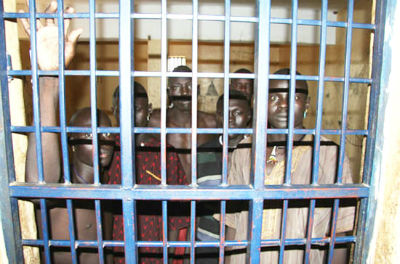 FOR IMMEDIATE RELEASE
FOR IMMEDIATE RELEASE
Juba, November 26, 2013 (SSNA) — The Government of the Republic of South Sudan should publicly disclose information about its use of the death penalty. South Sudan’s prison service carried out at least four executions this November. Two men convicted of murder were hanged in Juba on 12 November. Two others were killed in Wau on 18 November.
The SSLS has been unable to obtain specific information about these executions. Members of the Judiciary declined to provide the names of those executed. The facts of their alleged crimes are not known. Whether or not they had access to legal counsel is not known.
“The Government should disclose the identities of those executed and make public the details of their trials and convictions,” said Priscilla Nyagoah, advocacy officer with the South Sudan Law Society (SSLS). “This information is necessary to contribute to an informed and transparent national debate.”
These recent hangings are the latest in a disturbing series of judicial executions in South Sudan. The SSLS believes that at least fourteen individuals have now been hanged since South Sudan gained independence in July 2011. There are approximately 200 people on death row. The Government, however, does not publicly disclose information about death sentences or judicial executions. The actual number of individuals executed is likely higher.
The recent executions come less than a year after the Government of South Sudan, along with 110 other nations, voted in favor of a United Nations General Assembly resolution that calls on countries that use capital punishment to place a moratorium on judicial executions with a view to abolishing the death penalty. The resolution also calls on countries to respect international standards regarding fair trial rights and to make available relevant information about their use of the death penalty to contribute to informed and transparent debates. Since signing the resolution, however, senior government officials have said that their vote was a mistake and that the Government of South Sudan would continue to administer judicial executions.
“The government should notify the public of any impending execution and ensure that the relevant court records are accessible,” said Nyagoah. “Citizens have a right to understand the circumstances surrounding our government’s use of the death penalty.”
South Sudan’s justice system is struggling to establish itself after decades of civil war. Police and prosecutorial services are not available in much of the country and where they are available they do not have the human and financial resources to conduct proper investigations and prosecutions. Cases have been documented in which confessions are obtained through torture. Since the vast majority of people sentenced to death do not have access to legal counsel, accused persons are often unable to contest forced confessions or mount an adequate defense.
“To execute people who have not had access to a lawyer is a clear violation of international human rights law,” Nyagoah said. “Until the Government is able to ensure that every person accused of a crime punishable by death is provided with legal counsel, it should cease judicial executions.”
Proponents of the death penalty in South Sudan justify the punishment as a deterrent to violent crime. They argue that South Sudanese have been made violent and unruly as a consequence of protracted civil war and that convicted criminals must be dealt with harshly to send a signal to others who would commit similar crimes. There is, however, no evidence that judicial executions serve any deterrent function. Indeed, more than seven years after the end of the war, crime rates in South Sudan are as high as they have ever been.
“Government-sanctioned killings in this context merely perpetuate the notion that life is cheap in South Sudan,” Nyagoah said. “If the Government wants to change mindsets and discourage casual attitudes towards the taking of a life, it should lead by example and put in place a moratorium on capital punishment with a view towards abolishing the death penalty.”
About the South Sudan Law Society (SSLS)
The South Sudan Law Society (SSLS) is a civil society organization based in Juba. Its mission is to strive for justice in society and respect for human rights and the rule of law in South Sudan. The SSLS manages projects in a number of areas, including legal aid, community paralegal training, human rights awareness-raising, and capacity-building for legal professionals, traditional authorities, and government institutions.
Contact:

